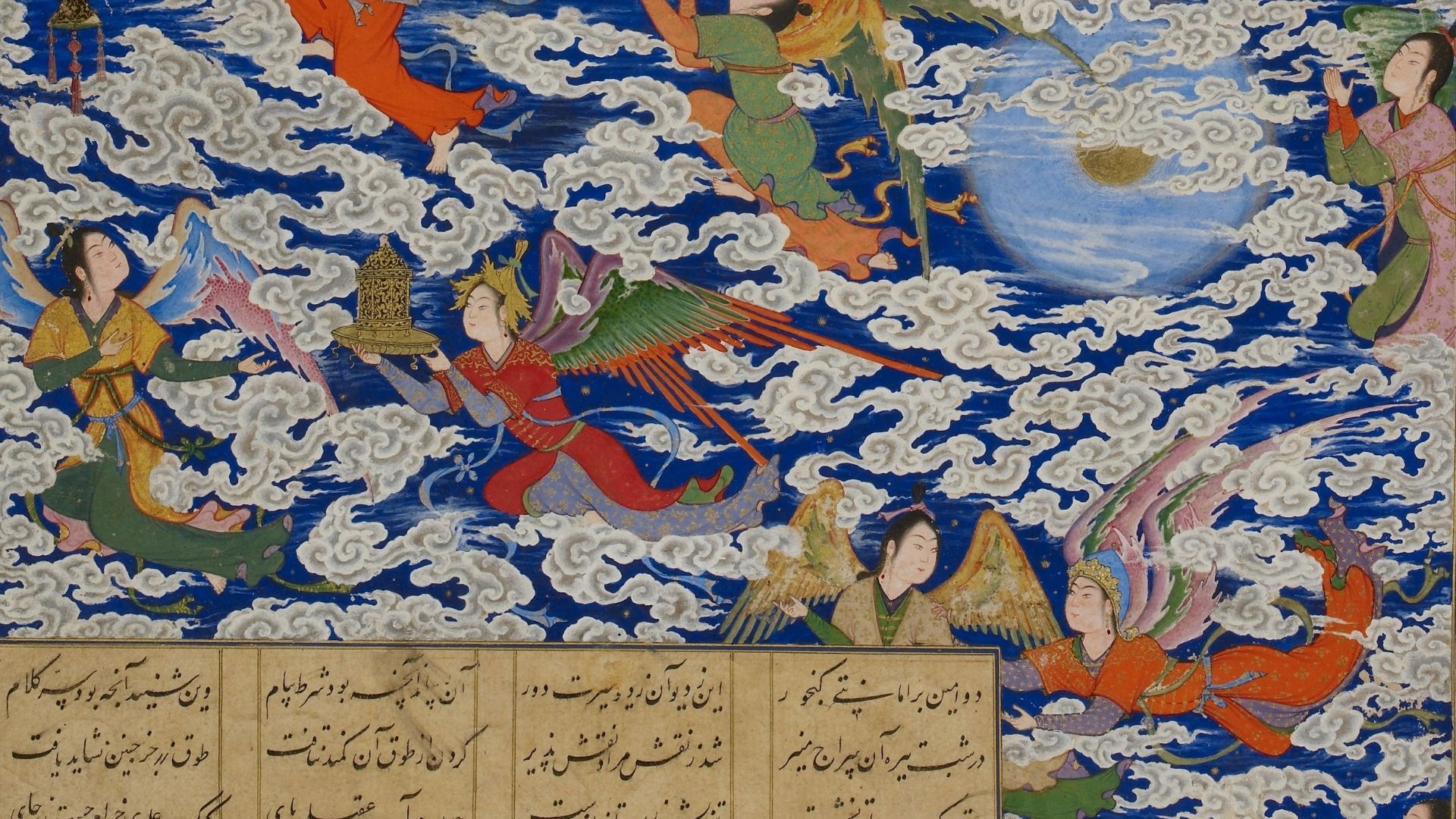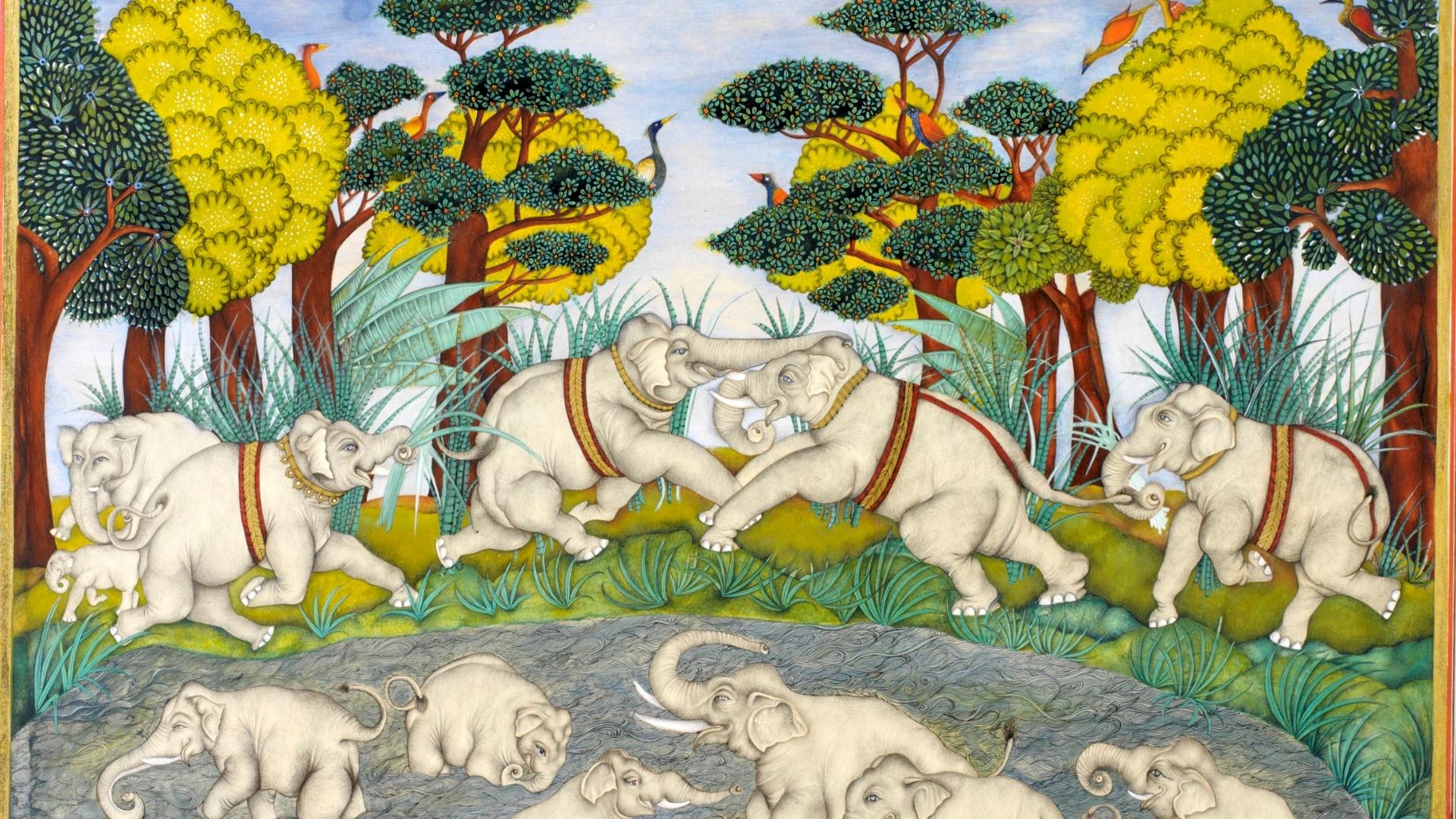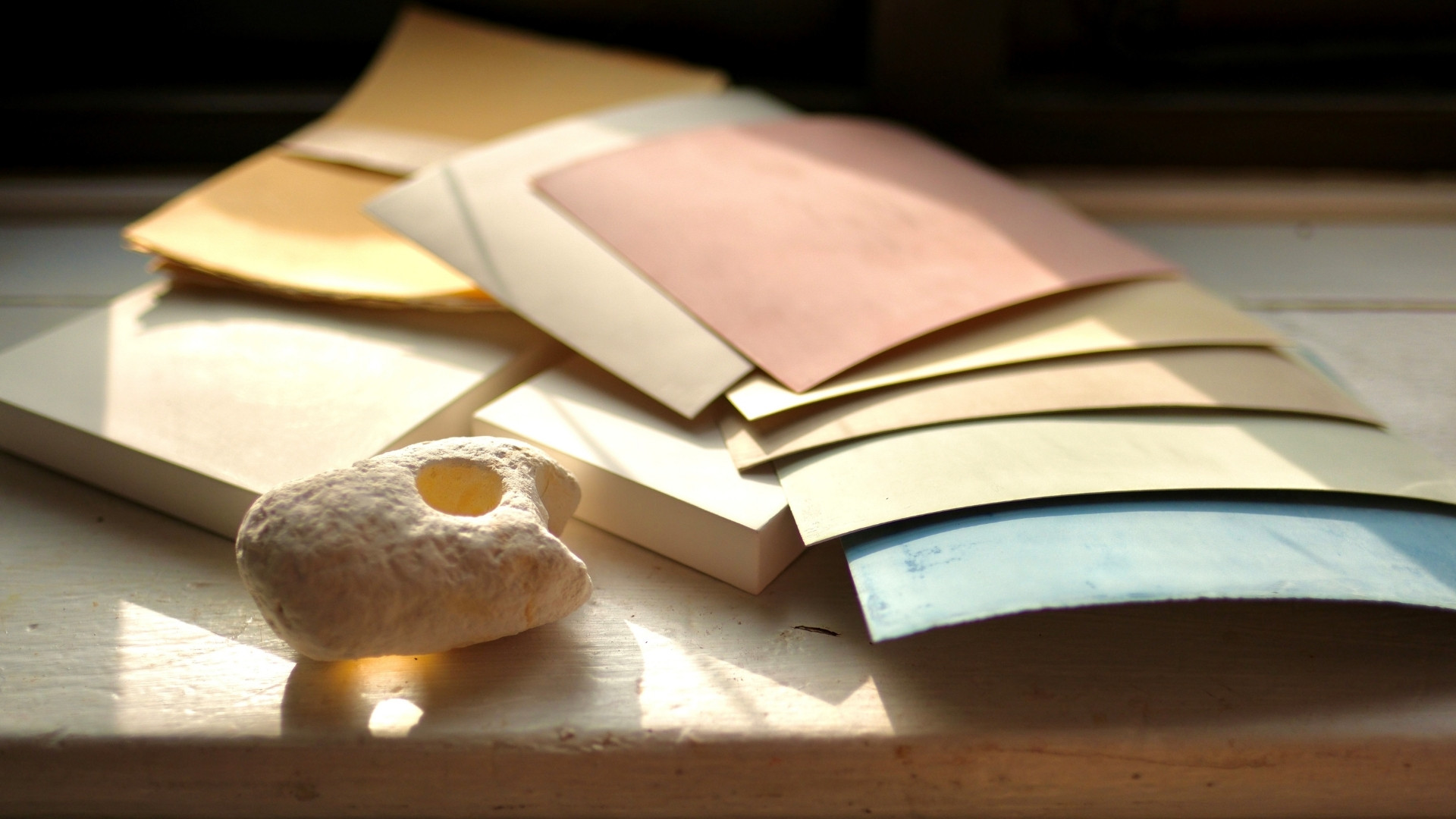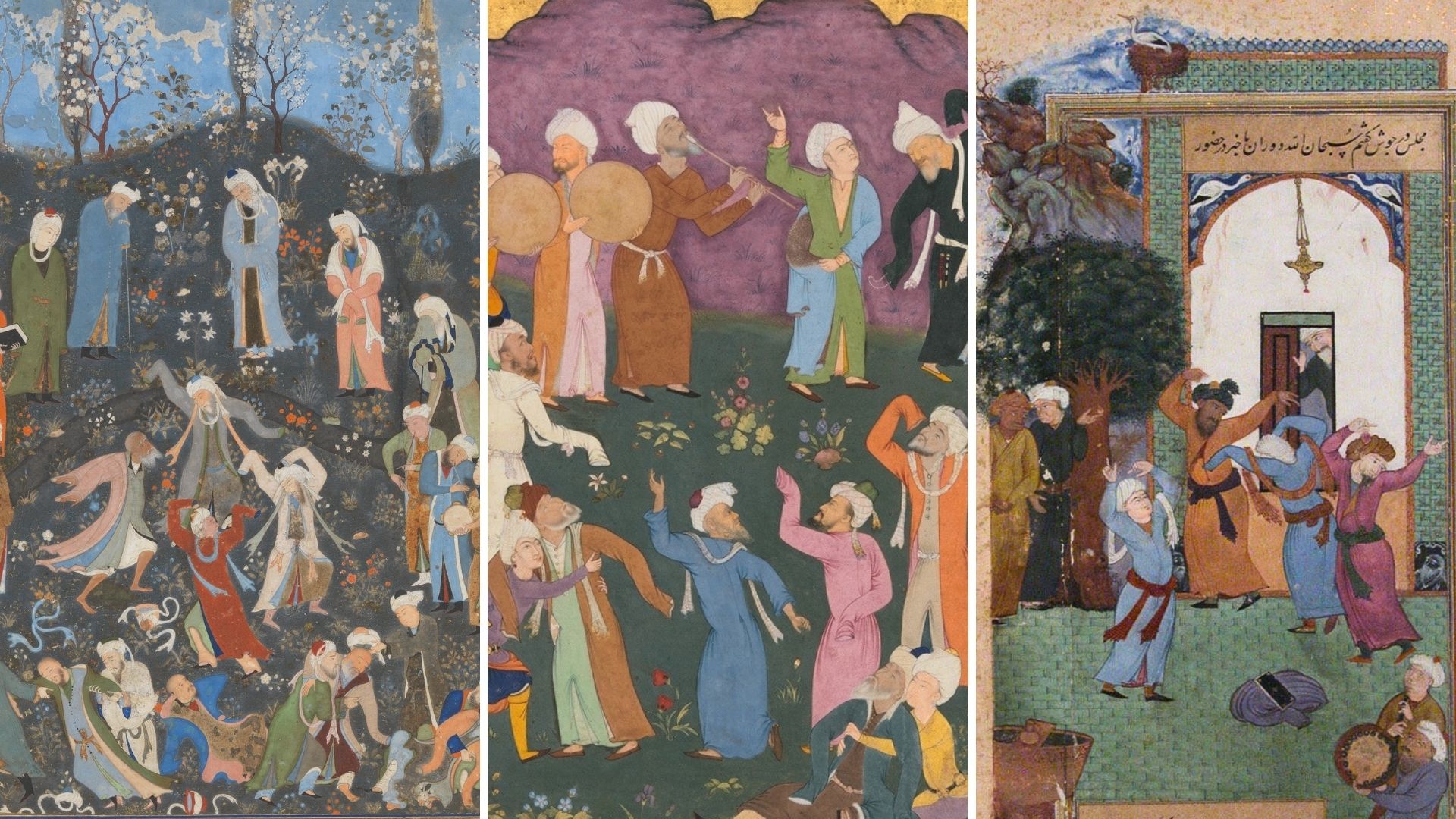About
Chinese influence on Persian miniature painting manifests itself most clearly in wild, brightly coloured clouds. In these paintings, the air comes alive with spiraling forms. This course will focus on the spiral constructions of clouds and stylised cloud motifs or bulut.
To begin, your tutor will discuss the context and history of this fascinating world. You will then learn practical steps for starting a miniature painting, including: how to burnish paper, ink the design, and transfer the design to prepared paper. The next phase of the course focuses on materials and tools for painting, and how they are used. There will be specific practise exercises to develop brush handling and techniques. Students will then move on to painting their own miniature clouds and using colour combinations. By the end of this course, you’ll have your own miniature painting and knowledge of key techniques.
Key Information
Who is this workshop for?
Students of all levels and experience are welcome.
You must be aged 18 or over to participate in our online programmes.
How many people can attend?
15 places are available.
What days/times do I attend?
Wednesdays, 4, 11, 18, 25 March, 1, 15 April 2026 (no class 8 April), 17:30 – 20:00
Please note that times are given in Greenwich Mean Time. However, from 29 March, we switch to British Summer Time (GMT+1).
How do I attend the online class?
This class will take place on Zoom, an online meeting platform. A link for joining the Zoom meeting will be in your confirmation email after booking.
What materials do I need?
- 1 x 000 size sable watercolour brush (00000 size in the US). The tutor recommends the Rocks brush from The Perfect Brush.
- 1 x fine sable watercolour brush for outlines. The tutor recommends the Clouds brush.
- 1 x larger sable watercolour brush for colour filling; The tutor recommends the Water brush.
Students on our courses are eligible for a 10% discount at the Perfect Brush, enter the code ‘CLASS10’ on checkout. NHS workers are eligible for 15% discounts, enter the code ‘NHS15’ on checkout. - 2 x A4 sheets of 300gsm hot-pressed smooth watercolour paper
- 2 x A4 sheets of tracing paper OR Saral wax-free tracedown paper
- Ink – either Chinese or Japanese black ink, in liquid or stick form. If using a stick, you will also need an inkstone. Avoid any ink that contains shellac.
- A palette with wells
- A water pot
- Sharp HB pencils, eraser, sharpener, ruler, ruling pen, masking tape
- A burnisher: a mineral egg or a cowrie shell. If you cannot find a burnisher, you can improvise one with a metal spoon or ceramic mug, provided the surface is perfectly smooth and will not scratch your paper.
- Artist-quality watercolours (preferably in pan form rather than tube form, but tube is ok). Required colours: 1 each of ivory black, titanium white, burnt umber, ultramarine blue, cadmium red, and cadmium yellow.
- Any other watercolours you are drawn to are optional, but not required. Colours that could be useful for a Persian palette include: malachite, lemon yellow, Naples yellow, permanent magenta, cobalt turquoise light, French vermilion, cobalt violet, Payne’s grey, permanent alizarin, permanent sap green, manganese blue, indigo, yellow ochre, gold ochre, green earth/terre vert, raw sienna, burnt sienna, raw umber, and burnt umber.
- Either genuine shell gold watercolour (22 carats or above) OR a synthetic gold watercolour paint, e.g. this paint from Finetec, or similar.
- Optional: An Ether brush for transfer, size medium or large is fine.
For the first session only, you will need:
- Sponges (washing-up sponges, brand new)
- MDF board that you don’t mind ruining on which to stick paper, bigger than A4 size
- A clean flat surface that you don’t mind getting wet, eg the above MDF board or equivalent, as we’ll use masking tape to tape the paper to so as not to destroy your tables
- Black teabags
- A kettle or means for heating water
- A bowl, either plastic or metal
- Starch (wheat, corn, potato, tapioca, rice – any) and access to cooker/hob
- A whisk or wooden spoon to stir the starch in water
Online Learning
What if I have questions during the workshop?
This will be a small workshop; Students will be able to ask questions via chat or unmute themselves.
Students will also have access to our online learning platform, Thinkific, where we share supplementary content.
I live in a different time zone, can I still attend?
We encourage you to attend the course in real time to really benefit from instruction; however, if you are unable to attend live due to the difference in time you can catch up via recordings on our online learning platform, Thinkific. These recordings are available for a limited time after the course.
Recordings cannot be purchased separately if the course is fully booked or if the course has already started.
Tips:
You must download the Zoom app and create a free account before the class begins, so that you can use the full range of features:
- You can create your free account here
- You can download the Zoom app onto your computer or device here
- You can create your free account here
FAQs
Do you offer concessions?
Yes, we offer concessions for Seniors/60+, full-time students and people who are unemployed/in receipt of benefits.
Concessions cannot be applied in retrospect. To receive a concession, please apply via our online form. We will then send you a discount code to use when booking your space.
What if I need to change or cancel my booking?
No refunds, unless cancelled by the School. If you cancel up to 1 week before the workshop starts, we can offer a transfer to another workshop of equivalent value, subject to availability.
Tutor Biography
Vaishali Prazmari is a multidisciplinary artist whose work incorporates elements from various cultures including the Indo-Persian miniatures and Chinese painting of her heritages. Vaishali holds degrees from both the Slade School of Fine Art and the King’s Foundation School of Traditional Arts and holds an MA in Medieval and Renaissance Studies (UCL) specializing in floating islands. She studied Persian and Indian manuscript painting under various masters and during her MA at PSTA and Chinese painting under a master in Hong Kong. Vaishali has been painting ever since she could get her chubby hands on a brush. Her work has been acquired in collections globally and she has exhibited nationally and internationally for nearly 20 years. She has been bringing traditional miniature painting to life for a wider audience as an educator for 10 years. Having been immersed in these ancient painting traditions as well as contemporary art she is now working towards a syncretic PhD at the Slade, an epic project that is a contemporary visual interpretation of the 1001 Arabian Nights. Born in London, she grew up on an island in Hong Kong and currently lives and works in London.



